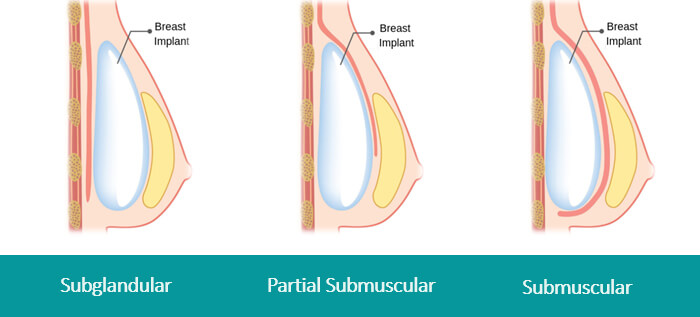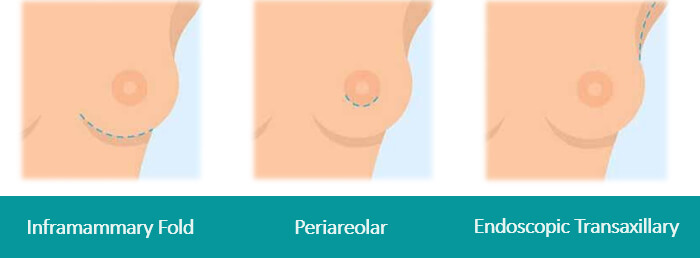Breast Basics
Welcome to Breast Implants basic information!
Do I need a breast lift?
If you’re not quite sure if you need a mastopexy (breast lift) please complete our virtual assessment.
A Breast lift (mastopexy) is designed to restore shape and reposition the breast tissue. The type of lift is usually determined by the severity of sag or ‘ptosis’. A breast lift can be usually performed with or without the use of implants, depending on your aesthetic goals. A mastopexy can also be used to address breast asymmetry.
For more information on lifts, visit our breast lift page
Implant Shape
Tear-drop Anatomical Breast Implants
Tear-drop implants are also known as Anatomical implants. They are designed to follow a contour closer to the natural breast with less volume at the top and more at the base. Tear-drop implants result in a more natural look and are recommended for patients wanting a natural sloping appearance mimicking the tear drop shape or a natural breast, more fullness in the lower pole or for those with lower-placed nipples.
Round Breast Implants
Round implants are symmetrical and don’t result in any visual change if they rotate. They only have a round outline from the front view, however. They routinely have a flat back which sits against the chest wall, and can have various degrees of forward projection. Round implants add volume both in the lower and upper part of the breast. Keep in mind that gravity does affect the implant, and over time they may take on a somewhat teardrop or anatomical appearance.
INTERNAL BRA
Implant Texture
Smooth Breast Implants
Smooth Breast Implants are a style of implant that has a smooth outer surface, meaning they may move freely within the capsule that forms around the implant. Smooth implants are generally softer than texture implants, allowing for a more natural look and feel.
Textured Breast Implants
Textured breast implants have a rougher, irregular surface. This texture is designed to help them them adhere to the surrounding body tissue and minimise displacement.
Implant Placement

Subglandular
Implants are inserted under the breast tissue and in front of the pectoral muscles.
Partial Submuscular (or Dual Plane)
Implants are inserted under the breast tissue and partially under the pectoral muscles.
Submuscular
Implants are inserted completely under the pectoral muscle.
Incision Placement

Inframammary Fold
This is generally one of the most common incision placements. It is usually around five centimetres long and placed close to the inframammary fold (crease of skin beneath the breast). This results in adequate access to correctly position the implant while placing the scar in an area that is not obvious.
Periareolar
The incision is made in the lower half of the areola, just inside the pigmented skin.
Transaxillary
The incision is placed in a skin fold in the armpit.
Implant Profile
Implants come in different profiles. The profile relates to the implant’s relative projection for a given diameter or base width; that is, how much the breast implant projects forward from the chest wall. Implants of the same volume (measured in cc, or cubic centimeteres) with different base widths will usually result in different levels of projection. Implants with a small base width will project out further compared with implants of the same volume but with a wider base width.
Generally, lower-profile implants aim to give a more natural look. Our doctors will discuss with you the type of ‘look’ that you would like to achieve and they will a take chest measurements to help you decide on the width and height of the implant needed.
Implant Size
Selecting the appropriate implant size for your breast augmentation can be a significant decision, and we understand that it may feel overwhelming. Dr Chinsee’s goal is to guide you through this process and help you achieve your desired outcome. There are various factors to consider, including your measurements, desired appearance, and lifestyle considerations.
It is essential to recognise that the same implant size can yield different results on different patients. Everyone has a unique combination of natural breast tissue and soft tissue, which influences the outcome. Breast augmentation is designed to complement your existing features, and the implant size should complement your natural proportions.
During the consultation, Dr Ian Chinsee will consider your measurements, frame, current cup size, and desired outcome. Based on this assessment, Dr Ian Chinsee will recommend a selection of implant sizes that align with your figure and anatomy. However, the ultimate decision on implant size will be yours, allowing you to feel confident and satisfied with the chosen option.
In addition to your aesthetic goals, it is crucial to consider your lifestyle and daily activities. If you are an active individual, participating in sports or running, for example, the recommended implant size should align with your physical activities and potential impact on your body.